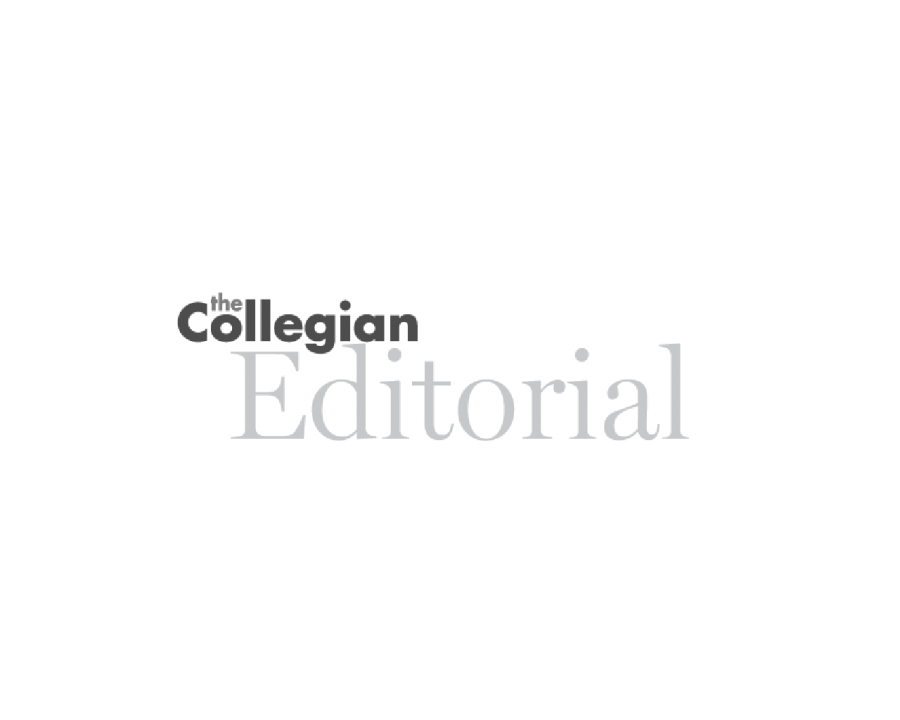EDITORIAL: Administration is overstepping its boundaries in regards to tobacco ban
August 30, 2017
SDSU administration isn’t listening to students regarding the tobacco ban and is overstepping its boundaries.
After six years of debate, the university has released a tobacco-ban policy.
A draft was released by President Barry Dunn Monday, Aug. 28, outlining the concept of a tobacco-free, smoke-free and E-Cigarette-free campus.
We, at The Collegian, discussed this topic in a previous editorial in our Feb. 1 issue after Students’ Association passed a smoking ban resolution.
Important note: SA passed a smoking ban, whereas the university administration released a complete tobacco ban, including smokeless tobacco and tobacco alternatives.
There were three resolutions on the table the night of SA’s Jan. 30 meeting — one for smoking (passed 17-2), and others for tobacco and E-Cigarettes. After passing the smoking ban resolution, SA tabled tobacco and E-Cigs until their Feb. 6 meeting.
Both the tobacco and E-Cig bans failed (10-17 and 13-15, respectively).
The Collegian Editorial Board feels the university’s decision to ignore Students’ Association’s vote and pass an all-tobacco ban is administrative overreach.
Where does the overreach stop?
The administration’s primary argument for implementing a tobacco ban was for greater health and wellness of our campus community.
Yes, tobacco products are harmful and life-threatening to users, and so is secondhand smoke, but that is an infringement upon an individual’s autonomy. It is not the university’s place to tell us what we can and cannot do when we are within our legal rights to choose whether or not to use tobacco products.
The second reason heard most from administration officials in defense of the tobacco ban was to align ourselves with other public universities in the state. Currently, South Dakota State is the only public university without a tobacco or smoking ban implemented.
As we said in the last editorial on this topic, the university is doing this for a gold star on its report card, which plain and simple is not a valid reason to police the legal actions of individuals.
Another argument in defense of a tobacco ban from the SA meeting was challenging students to adjust to professional work environments.
First of all, smoking is permitted in most work environments outside of buildings. Second, campus is not just a work environment; for most students, it is also home. Third, implementing a policy not widely supported by the student body for the sake of our health, as if we are children and this decision was made for our own good, throws the argument of practicing professionalism out the window.
Finally, the weakest portion of any type of tobacco ban is enforcement.
Currently, individuals are expected to smoke at least 25 feet away from building entrances.
Do they? Oftentimes, no.
But does anyone enforce this?
Absolutely not.
And the proposed “enforcement” for this tobacco ban?
Offering pamphlets on tobacco cessation classes; encouraging a person not to smoke through health and wellness education.
All this policy will manage to accomplish is alienating tobacco and E-Cigarette users from the rest of our campus community.
If you are a professor who likes to smoke between teaching classes, you’re forced to walk off campus.
If you are an international student whose culture involves smoking in social settings, our university administration says you’d better brave our harsh South Dakota winter and walk off campus to smoke; lest you be harassed to educate yourself about the negative health effects of your culture.
Apart from all these issues with the tobacco ban itself, it’s extraordinarily disappointing that our university is offering 30 days of public comment via email.
There will be no open town hall sessions. There will be no discussions with university officials. You may email the president’s office to voice your concerns.
Yes, perhaps the argument could be made that more students should have voiced their concerns at Students’ Association, but to entirely take away the opportunity to discuss these issues with university officials face-to-face?
That shows a lack of interest from administration in student voice. Not only did they draft a policy our Students’ Association was not in full support of, they won’t be talking with students in person to hear concerns either.
For a policy that will impact students more than any other demographic at SDSU, the administration’s decision not to bring this policy before Students’ Association or offer a public platform of discussion shows the university is focused more on its own agenda than its students’ concerns.
Before implementation, the policy should return to Students’ Association and administration should hold town hall sessions for public comment.
The Collegian Editorial Board meets weekly and agrees on the issue of the editorial.The editorial represents the opinion of The Collegian.

























